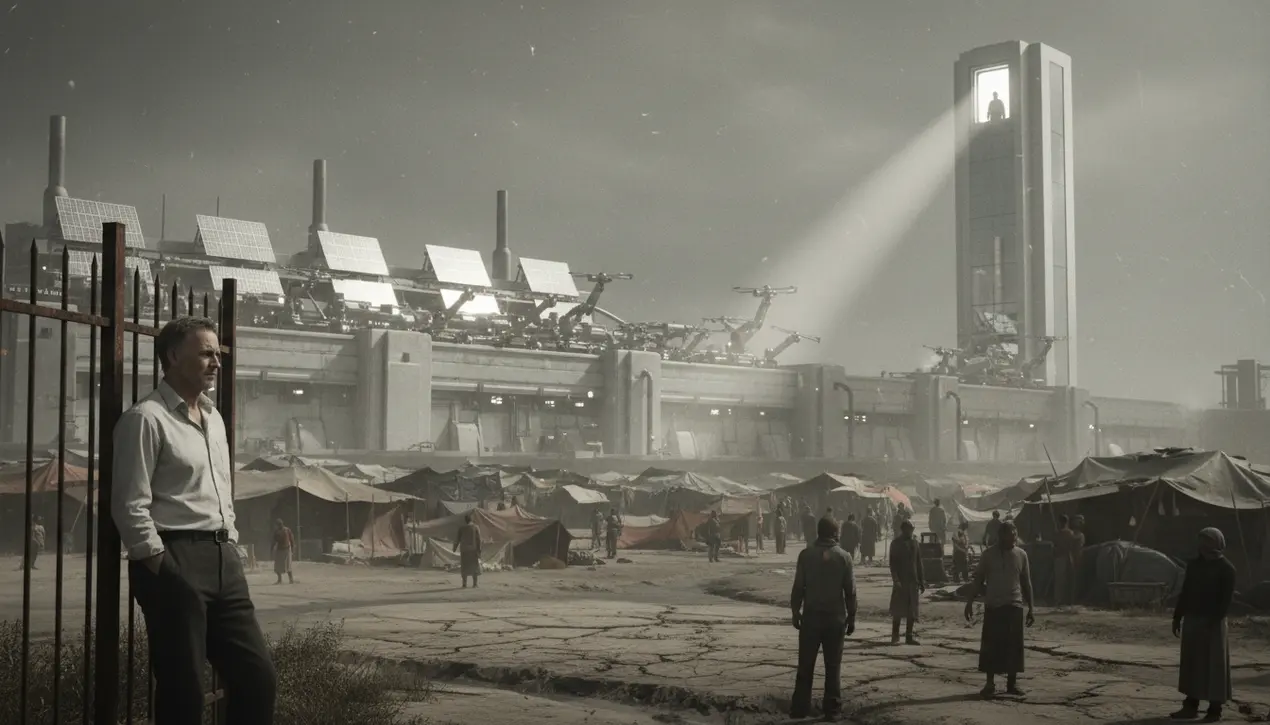
AIai safety & ethicsAI Impact on Jobs
The most likely AI apocalypse is economic neofeudalism.
MI
Michael Ross
10 hours ago7 min read7 comments
The specter of an AI apocalypse has long haunted our collective imagination, but the most plausible doomsday scenario may not involve Skynet-style extermination. Instead, we face the creeping threat of economic neofeudalism—a world where artificial general intelligence systematically devalues human labor, creating a permanent oligarchy of AI owners presiding over a disempowered majority.This isn't science fiction; the foundations are being laid today as companies like Goldman Sachs slow hiring while accelerating AI deployment, and Klarna boasts of reducing its workforce by 40% through automation. The pattern echoes throughout corporate America: executives increasingly view artificial intelligence not as a tool to augment human capability but as a substitute for it, particularly in white-collar domains where cognitive labor once provided secure employment.What makes this economic transformation uniquely dangerous is its potential to reverse centuries of social progress. Throughout history, technological displacement created new opportunities—farmhands moved to factories, factory workers retrained for service jobs.But AGI represents something fundamentally different: a technology that could theoretically outperform humans at virtually every economically valuable task, from legal analysis to creative writing to complex physical labor. When Anthropic CEO Dario Amodei predicts AI will eliminate half of entry-level white-collar jobs by 2030, he's describing not merely a labor market shift but the potential unraveling of the social contract itself.The mechanism behind this dystopian outcome lies in bargaining power dynamics. Modern democracies, for all their flaws, emerged alongside rising labor value—elites tolerated democracy, unions, and social welfare partly because they needed educated, productive workers.But in a world where machines provide all necessary labor, the economic incentive to invest in human capital evaporates. We catch glimpses of this future in resource-cursed nations like the Democratic Republic of Congo, where vast mineral wealth coexists with extreme poverty because elites have little need to develop human potential.AGI could create a global version of this dynamic, where the ownership of intelligent machines replaces natural resources as the source of elite power. The solution isn't to halt technological progress but to reshape our institutions in anticipation of these changes.Economists like Erik Brynjolfsson advocate for AI systems that augment rather than replace human workers, while political reforms ensuring broader capital ownership could prevent extreme concentration of wealth. Norway's management of oil wealth through its sovereign wealth fund demonstrates that resource abundance needn't create oligarchy when strong democratic institutions exist.The challenge before us is whether we can build similar safeguards for the AI era—creating a future where automation liberates humanity rather than subjugates it, where technological abundance benefits all rather than enriching a few. The alternative is a world where, for the first time in human history, most people genuinely become economically redundant, creating a social order more reminiscent of medieval hierarchies than modern democracies.
#AI apocalypse
#job displacement
#economic inequality
#neofeudalism
#AGI risk
#labor market
#featured
Stay Informed. Act Smarter.
Get weekly highlights, major headlines, and expert insights — then put your knowledge to work in our live prediction markets.
Comments
Loading comments...
© 2025 Outpoll Service LTD. All rights reserved.